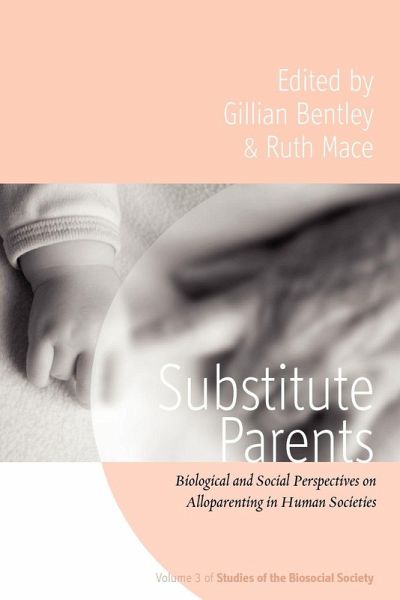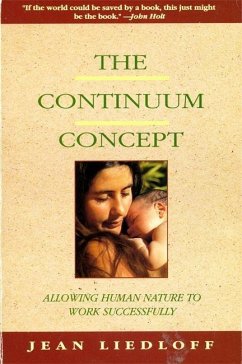
Substitute Parents
Biological and Social Perspectives on Alloparenting in Human Societies
Herausgeber: Bentley, Gillian; Mace, Ruth
Versandkostenfrei!
Versandfertig in 1-2 Wochen
43,99 €
inkl. MwSt.

PAYBACK Punkte
22 °P sammeln!
From a comparative perspective, human life histories are unique and raising offspring is unusually costly: humans have relatively short birth intervals compared to other apes, childhood is long, mothers care simultaneously for many dependent children (other apes raise one offspring at a time), infant mortality is high in natural fertility/mortality populations, and human females have a long post-reproductive lifespan. These features conspire to make child raising very burdensome. Mothers frequently defray these costs with paternal help (not usual in other ape species), although this contributi...
From a comparative perspective, human life histories are unique and raising offspring is unusually costly: humans have relatively short birth intervals compared to other apes, childhood is long, mothers care simultaneously for many dependent children (other apes raise one offspring at a time), infant mortality is high in natural fertility/mortality populations, and human females have a long post-reproductive lifespan. These features conspire to make child raising very burdensome. Mothers frequently defray these costs with paternal help (not usual in other ape species), although this contribution is not always enough. Grandmothers, elder siblings, paid allocarers, or society as a whole, help to defray the costs of childcare, both in our evolutionary past and now. Studying offspring care in a various human societies, and other mammalian species, a wide range of specialists such as anthropologists, psychologists, animal behaviorists, evolutionary ecologists, economists and sociologists, have contributed to this volume, offering new insights into and a better understanding of one of the key areas of human society.












